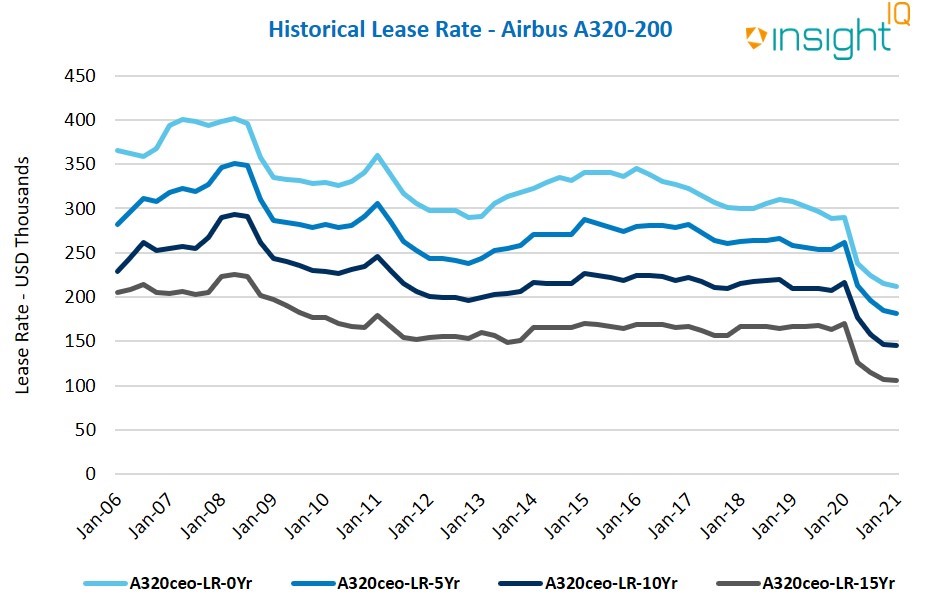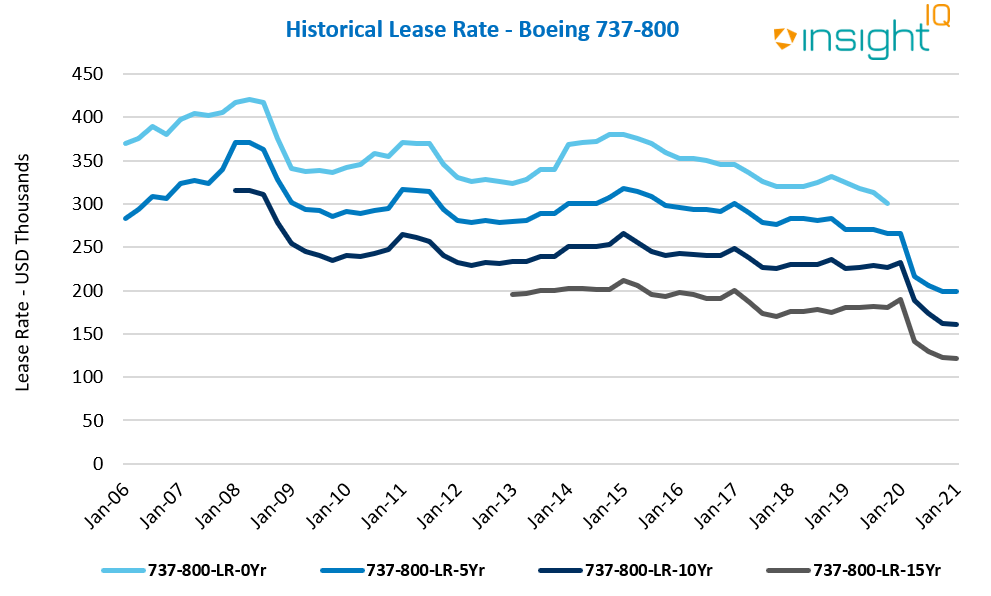14/06/2021
The last year has, even for the aviation industry, been very unusual; traumatic, in fact, for some businesses. The number of high-profile insolvencies at a time of very low demand for aircraft has given rise to a situation where the usual recourse available to lessors, that is repossession of aircraft and then re-leasing or selling the asset, is not available. As IBA reported in October 2020, this environment has resulted in a substantial increase in the number of PBH arrangements being negotiated as an alternative to repossession by lessors and/or rejection or abandonment by airlines. Will the demand for PBH deals persist as the aviation market recovers?
Power by the Hour (PBH) lease rental arrangements have been around for some considerable time in the aviation industry. They have served a niche requirement in specific circumstances, such as engine leasing, initial operation start-ups, or highly seasonal airlines. Recent use of PBH rental structures, however, has been widespread and hasn't been limited to any one specific region or even a specific class of operator. With the exception of the larger, financially sound national carriers, requests for such structures have come from right across the aviation spectrum. Some airlines' PBH requirements have been driven by their well-documented financial troubles and it would seem they are using the situation as an opportunity to begin afresh. Others, whilst apparently in good health, are seeing a chance to reduce their cash outflows at a time of low market demand.
In the short term, use of PBH structures has worked to the advantage of both lessors and lessees. Lessors can avoid the significant costs involved in repossessing an aircraft: flight permits, crews, storage costs, maintenance and insurance, to list but a few, whilst at the same time receiving some income for their asset. This revenue will evidently not be to the same value as they'd expect from a standard lease rental and will be unlikely to meet the lessor's costs of capital. Lessees are experiencing a market in which lessors are keen to keep aircraft with airlines. They therefore have a strong negotiating hand. Those airlines protected by Chapter 11 proceedings are perhaps in a particularly advantageous position in lease negotiations. They currently have the power to reject aircraft which are considered surplus to requirement or not cost effective with relatively little cost or adverse consequence.
These market conditions, coupled with a degree of good will due to the effects of Covid on operations, mean airlines are sometimes finding it possible to negotiate lengthy PBH arrangements and significantly reduce their cash flows for periods of up to two years. In addition, they are able to negotiate considerably lower ongoing monthly lease rentals at the end of these arrangements, albeit these reduced rates are generally at the expense of a longer leasing period.
The consequences of a leasing market willing to consider PBH arrangements should not be understated. At present, they have arisen to fix the relatively short-term problems caused by Covid. PBH deals also create potential for lessors to obtain higher overall rental income when an airline's operations increase. However, if they prove a successful mechanism going forwards and airlines that have negotiated deals recover and meet all financial obligations to their lessors, they may well become established as a precedent for future aviation market downturns.
IBA is starting to see some settling in the market. Most of the PBH arrangements with which we're involved are those that have been under negotiation for some time. There seems to be reduced interest in negotiating new arrangements. More lessees are now requesting standard lease rental arrangements rather than PBH mechanisms. This is probably due to the low monthly rental rates in the current market. Airlines are looking to 'lock in' low lease rentals now rather than risk having to renegotiate in a year's time when passenger traffic is likely to have started to recover. Lessors meanwhile, never fully comfortable with PBH arrangements and seeing them as a necessary evil, are seemingly happy to negotiate a lower but fixed monthly rental which gives them a stronger guarantee of income.

Source: IBA's InsightIQ Aircraft Trends Data

Source: IBA's InsightIQ Aircraft Trends Data
IBA believes, whilst in the short term we will see a few more PBH arrangements being negotiated to cover specific circumstances, the leasing market is again moving away from such deals as the market slowly improves. We will probably experience significantly lower lease rentals than those witnessed in 2019 for at least the next year or two, but things should improve over time. There may be further hurdles as the Covid vaccine programme is rolled out across the world. However, the aviation industry has weathered many storms in the past, and there will always be a desire to transport both passengers and cargo by air.
If you have any further questions please get in touch with our team.

IBA's InsightIQ analysis platform flexibly illustrates multiple asset, fleet and market positions, actual and potential, to inform client choices and identify acquisition opportunities. Immediate access to crucial aircraft, engine, lease rate and fleet data eases appreciation of historic and future aircraft concentrations and operator profiles.
Related content